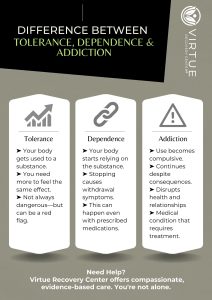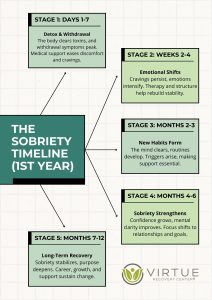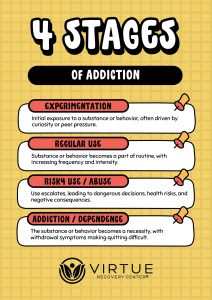Key Takeaways
- Percocet addiction can lead to serious health risks, including withdrawal and overdose.
- Misusing this prescription opioid often results in dependency and long-term harm.
- Professional treatment offers safe and effective pathways to recovery.
Introduction to Effects of Percocet Addiction, Withdrawal and Overdose
Percocet is a prescription medication often used to treat moderate to severe pain. It contains two main ingredients: oxycodone, a powerful opioid, and acetaminophen, a common pain reliever. While effective for pain management, Percocet carries a high risk of misuse and addiction due to the euphoric effects of oxycodone.
Understanding the dangers of Percocet addiction, the signs of misuse, and the importance of treatment is vital. This article explores the effects of Percocet abuse, withdrawal symptoms, and how professional care can help individuals recover.
What is Percocet, and Why is it Addictive?
Percocet works by altering the way the brain perceives pain. Oxycodone, one of its components, binds to opioid receptors in the brain, blocking pain signals and creating a sense of euphoria.
This pleasurable feeling makes Percocet prone to misuse. Over time, the brain becomes dependent on the drug to release dopamine, the chemical responsible for pleasure and reward. As a result, individuals may use more Percocet than prescribed, increasing the risk of addiction.
Signs and Symptoms of Percocet Addiction
Recognizing the signs of Percocet addiction is the first step toward seeking help.
Behavioral Signs
- Taking higher doses or using Percocet more frequently than prescribed.
- Visiting multiple doctors to obtain additional prescriptions (doctor shopping).
- Secretive behavior to hide drug use from loved ones.
Physical Symptoms
- Drowsiness and confusion.
- Slowed breathing and difficulty concentrating.
- Withdrawal symptoms when not using the drug.
Psychological Effects
- Cravings for Percocet.
- Increased irritability or mood swings.
- Inability to stop using despite adverse consequences.
Short- and Long-Term Effects of Percocet Abuse
Misusing Percocet has both immediate and lasting effects on the body and mind.
Short-Term Effects
- Euphoria and relaxation.
- Dizziness, nausea, and drowsiness.
- Impaired coordination and judgment.
Long-Term Risks
- Liver damage due to excessive acetaminophen use.
- Respiratory depression, which can become life-threatening.
- Dependency and heightened risk of overdose, especially when combined with alcohol or other substances.
Over time, the adverse effects of Percocet addiction can impact every aspect of a person’s life, from physical health to relationships and work.
Understanding Percocet Withdrawal Symptoms
When someone becomes dependent on Percocet and stops using it, withdrawal symptoms often follow. These symptoms can be both physical and emotional, making it difficult to quit without help.
Common Withdrawal Symptoms Include:
- Muscle aches and sweating.
- Nausea, vomiting, and diarrhea.
- Insomnia and restlessness.
- Intense cravings for the drug.
The severity of withdrawal depends on factors like the duration and amount of Percocet use. Medical detox is recommended to manage these symptoms safely and effectively.
Treatment Options for Percocet Addiction
Recovering from Percocet addiction is possible with the right treatment plan. Professional programs offer comprehensive care to address both the physical and psychological aspects of addiction.
Medical Detox
Detox is the first step in recovery. It involves safely removing Percocet from the body under medical supervision. Doctors may use medications to ease withdrawal symptoms and ensure comfort during this process.
Behavioral Therapies
Therapies like cognitive-behavioral therapy (CBT) help individuals identify the thoughts and behaviors contributing to their addiction. Through counseling, they learn healthier coping strategies and ways to manage triggers. By utilizing various CBT techniques for addiction therapy, individuals can break the cycle of negative thinking and develop a more positive mindset. These techniques often include cognitive restructuring, which helps challenge and change unhelpful beliefs, as well as exposure therapy, which allows individuals to confront and manage their cravings in a controlled environment. As a result, participants can gain a greater sense of control over their lives and make lasting changes toward recovery.
Medication-Assisted Treatment (MAT)
MAT uses FDA-approved medications like buprenorphine or methadone to reduce cravings and withdrawal symptoms. These medications allow individuals to focus on their recovery without the constant pull of addiction.
Inpatient and Outpatient Programs
Inpatient programs provide a structured environment for recovery, with round-the-clock care and support. Outpatient programs offer flexibility, allowing individuals to attend treatment while maintaining work or family commitments.
Aftercare and Support Groups
Long-term support is essential for maintaining sobriety. Aftercare plans may include group therapy, 12-step programs like Narcotics Anonymous (NA), or continued counseling sessions.
The Importance of Addressing Co-occurring Disorders
Many people struggling with Percocet addiction also face mental health challenges like anxiety or depression. These are known as co-occurring disorders. Treating both addiction and mental health conditions together is critical for lasting recovery.
Integrated treatment plans combine addiction therapy with mental health support, ensuring that individuals receive care tailored to their unique needs.
Preventing Relapse and Maintaining Sobriety
Recovery doesn’t end with completing a treatment program. Preventing relapse requires ongoing effort and support.
Strategies for Long-Term Recovery:
- Building a strong support network of friends, family, and peers in recovery.
- Avoiding triggers, such as environments or situations that may lead to relapse.
- Developing healthy habits, including regular exercise, balanced nutrition, and stress management techniques.
Relapse is a standard part of the recovery process, but it doesn’t mean failure. With the right tools and support, individuals can overcome setbacks and continue their journey to sobriety.
Conclusion
Percocet addiction is a serious condition that affects the body, mind, and life of those struggling with it. Misuse can lead to dependency, withdrawal, and even overdose, but help is available.
Professional treatment programs offer a path to recovery through medical detox, therapy, and ongoing support. If you or someone you love is battling Percocet addiction, don’t wait to seek help.
Contact Virtue Recovery Las Vegas at 866-520-2861 today for compassionate care and personalized treatment. Recovery is possible, and we’re here to help every step of the way.
FAQs
What is Percocet, and why is it addictive?
Percocet is a prescription pain reliever that contains oxycodone, an opioid that can cause euphoria and dependency when misused.
What are the signs of Percocet addiction?
Signs include using more than prescribed, cravings, mood swings, drowsiness, and secretive behavior.
What are the risks of Percocet abuse?
Risks include liver damage, respiratory depression, dependency, and increased overdose risk, especially when mixed with other substances.
How can Percocet withdrawal symptoms be managed?
Withdrawal symptoms can be managed through a medical detox and medication-assisted treatment (MAT).
What are the treatment options for Percocet addiction?
Treatment includes detox, therapy, medication-assisted treatment, and aftercare programs to maintain long-term sobriety.
What are the side effects of Percocet addiction?
Percocet addiction can lead to side effects like drowsiness, confusion, constipation, nausea, and more severe issues like respiratory depression, liver damage, and an increased risk of overdose.
Where can I find a Percocet addiction treatment program for opioid use disorder?
You can find Percocet addiction treatment programs through facilities like Virtue Recovery Center, which offers evidence-based care for opioid use disorder.
What are some causes and risk factors for Percocet addiction?
Risk factors include prolonged use or misuse of Percocet, genetic predisposition, mental health conditions, and a history of substance abuse.
What are the medications for Percocet withdrawal and overdose treatment?
Medications like buprenorphine and methadone are used to manage withdrawal symptoms, while naloxone can reverse an overdose by blocking opioid effects.
What are the effects of withdrawal from Percocet side effects?
Withdrawal effects can include muscle aches, nausea, sweating, insomnia, agitation, and intense cravings, which can make quitting difficult without professional help.
Why is professional substance abuse treatment better than fighting addiction alone?
Professional treatment provides medical support, therapy, and a structured environment to address the root causes of addiction, increasing the chances of long-term recovery.
Resources
https://www.accessdata.fda.gov/drugsatfda_docs/label/2006/040330s015,040341s013,040434s003lbl.pdf
https://www.webmd.com/drugs/2/drug-7277/percocet-oral/details
https://reference.medscape.com/drug/percocet-oxycodone-acetaminophen-343354













